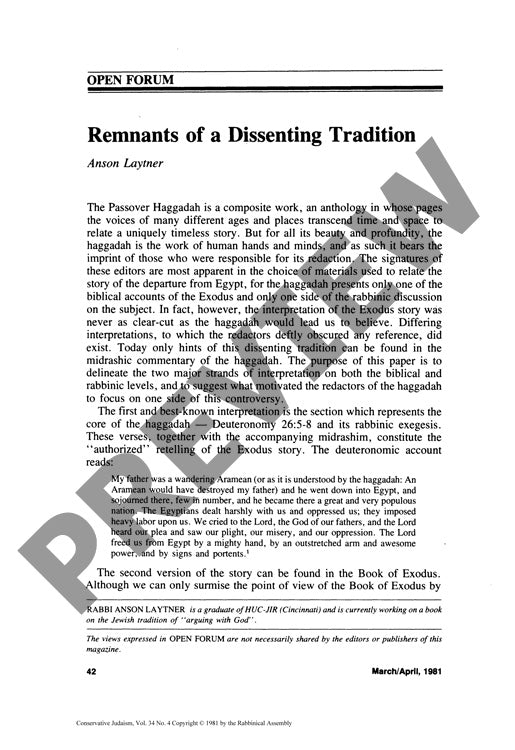Remnants of a Dissenting Tradition
Couldn't load pickup availability
Two competing narratives of Israel's spiritual state during Egyptian bondage emerge from the biblical record, yet the Passover Haggadah's rabbinic redactors made deliberate choices to emphasize just one. Through comparative textual and midrashic analysis, distinct tensions surface between the deuteronomic account portraying Israel as faithful and deserving of redemption (Deuteronomy 26:5-8) and the Exodus version suggesting deeper spiritual compromises. While both biblical and rabbinic sources contain evidence of Israel's lapses—including abandoned circumcision practices and adopted idolatry—the Haggadah's editors consistently privileged the more favorable deuteronomic interpretation. Their editorial decisions reflect the text's liturgical purpose as a source of hope, prioritizing a redemptive model over historical critique. Yet traces of this "dissenting tradition" remain embedded within the Haggadah's commentary, particularly visible through rabbinic interpretations of key phrases that hint at underlying controversies about covenant faithfulness. This suppressed counter-narrative arguably offers a more nuanced view of divine-human relationships that may better align with contemporary Jewish experience.

More Information
-
Physical Description
-
Publication Information
Published 1981
ISBN
-
Publication Credits
Anson Laytner

